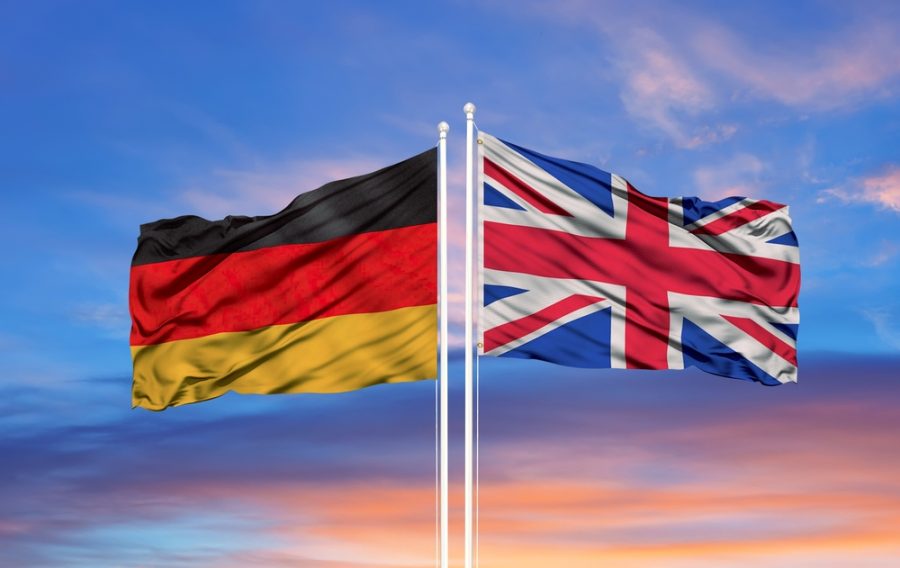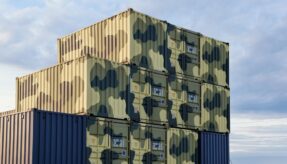
A landmark defence agreement has been signed by Defence Secretary John Healey MP and German Defence Minister Boris Pistorius in London in a major moment for NATO, and European security and prosperity. It is the first-of-its-kind agreement between the UK and Germany on defence.
The signing of the Trinity House Agreement marks a fundamental shift in the UK’s relations with Germany and for European security. This agreement between Europe’s two biggest defence spenders will strengthen national security and economic growth in the face of growing Russian aggression and increasing threats.
The new partnership will help drive investment into the UK – with the agreement paving the way for a new artillery gun barrel factory to be opened in the UK, supporting more than 400 jobs and nearly half a billion-pounds boost to the British economy. The opening of the Rheinmetall factory will see the UK manufacture artillery gun barrels for the first time in ten years, using British steel produced by Sheffield Forgemasters.
The deal will see the UK and Germany work together systemically for years to come on a range of ground-breaking defence projects and across all domains (air, land, sea, space and cyber). This includes working jointly to rapidly develop brand-new extended deep strike weapons that can travel further with more precision than current systems, including Storm Shadow.
It will bring the two nation’s defence industries closer than ever, including a long-term commitment to manufacturing Boxer armoured vehicles, supporting skilled jobs across the UK. The deal also aims to support and expanded complex weapons development in the UK, laying a path for Sting Ray Torpedoes procurement.
The Trinity House Agreement includes:
- New long-range strike weapons – working jointly to rapidly develop a new system that can fire even further and be more precise in its targeting than any current system.
- New boost for British industry – a new large calibre gun manufacturing facility in the UK, supporting more than 400 jobs, and planned to use British steel, bringing nearly half a billion-pound economic boost to the UK over 10 years.
- New cooperation to strengthen the Eastern Flank – the armies training and exercising more together, using the front as a catalyst for developing new ways of fighting.
- Land Industrial Cooperation – cooperation on Boxer armed vehicles and kickstarting collaboration of land-based drones.
- Protecting critical underwater infrastructure – working together to protect the vital cables in the seabed on the North Sea. This includes exploring new offboard undersea surveillance capabilities to improve detection of adversary activity.
- German planes in Scotland – German P8 aircraft will periodically operate out of Lossiemouth to help protect the North Atlantic.
- New drones – working towards drones that could operate alongside our fighter jets, as well as drones that can be used by other military force.
- Exploration and development of new Maritime Uncrewed Air System capabilities.
- New Ukraine support – new joint work to enable German Sea King helicopters to be armed with modern missile systems as well as work on capability coalitions.
- Joint work with partners to integrate air defence systems to better protect European air space against the threat of long-range missiles, building on work agreed at the NATO Defence Ministers meeting just last week.
The agreement is a key example of the Government delivering on its commitment to reset relations with European allies and bolster national security. It will be signed less than 100 days after the Defence Secretary visited Berlin to kick off negotiations in July and is the first pillar in a wider UK-Germany treaty pledged by Prime Minister Keir Starmer and Chancellor Olaf Scholz in August.
Defence Secretary John Healey MP said: “The Trinity House Agreement is a milestone moment in our relationship with Germany and a major strengthening of Europe’s security.
“It secures unprecedented levels of new cooperation with the German Armed Forces and industry, bringing benefits to our shared security and prosperity, protecting our shared values and boosting our defence industrial bases.
“This landmark agreement delivers on the Government’s manifesto commitment to strike a new defence relationship with Germany – less than four months since winning the election in July – and we will build on this new cooperation in the months and years ahead.
“I pay tribute to our negotiating teams who have worked hard at pace to deliver this.”
German Defence Minister Boris Pistorius said: “The UK and Germany are moving closer together. With projects across the air, land, sea, and cyber domains, we will jointly increase our defence capabilities, thereby strengthening the European pillar within NATO. We can only strengthen our ability to act together. This is why our cooperation projects are open to other partners.
“We must not take security in Europe for granted. Russia is waging war against Ukraine, it is increasing its weapons production immensely and has repeatedly launched hybrid attacks on our partners in Eastern Europe.
With the Trinity House Agreement, we are showing that the NATO Allies have recognised what these times require and are determined to improve their deterrence and defence capabilities. As it lays the foundation for future projects, the Trinity House Agreement is an important contribution to this. It is particularly important to me that we cooperate even more closely to strengthen NATO’s eastern flank and to close critical capability gaps, for instance in the field of long-range strike weapons.
Armin Papperger, CEO and Chairman of Rheinmetall AG commented that: “Rheinmetall’s investment in the gun hall reflects a forward-looking approach to innovation, collaboration, and national defence. It ensures the UK remains a leader in developing and manufacturing defence technologies that safeguard both national and global security.”
Gary Nutter, Chief Executive Officer at Sheffield Forgemasters, said: “I am delighted to confirm that Sheffield Forgemasters will reinstate gun barrels manufacture after a 20-year hiatus, to supply large-calibre gun-barrels to Germany’s Rheinmetall AG, servicing UK defence contracts and exports.”
If you would like to join our community and read more articles like this then please click here








